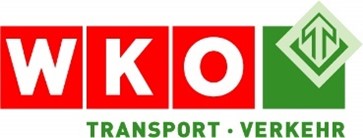Interview with Alexander Klacska
| Mr Alexander Klacska is CEO of Paul Klacska GmbH and its international subsidiaries as well as Chairman of the Transport and Logistics Division in the Austrian Economic Chamber. Having studied at the Vienna University of Economics and Business and the University of Nebraska he is a member of various supervisory and advisory boards and President of the Austrian Road Haulage Association. |
| Fit for 55 – just another driver of Innovation 1. What role does climate protection play for the transport sector? The transport sector fully supports the ambitious climate targets. We welcome the proposals the European Commission presented to implement the European Green Deal, like the “Fit for 55 Package” and the “Efficient and Green Mobility Package”. To successfully manage the transition to carbon-neutral mobility it is important that we are open towards all different kinds of technologies. We need electric drive, especially for short-distance transport and light vehicles, as well as hydrogen for long distances and heavy-duty vehicles, i.e. lorries and buses. And we also have to rely on e-Fuels as a climate-neutral way to continue running combustion engines. In addition, the security of energy supply at affordable prices has to be guaranteed. To this end, we need to conclude energy partnerships around the world to make optimal use of renewable energy sources. In Austria, as well as in other European countries, official approval procedures for major infrastructure projects – especially in the energy sector – have to be sped up drastically. We cannot wait 10 years or more for every wind farm to be authorized. 2. What kind of support do transport businesses need to manage the transition? Businesses need incentives, not bans. Ambitious goals for the reduction of CO2 can be set top-down but the necessary technological solutions have to be – first – available on the market and – second – at competitive prices. Companies in the mobility sector cannot be left to bear the costs of the transition. As long as the costs for acquisition and running of vehicles with alternative fuels are up to 3 times higher than for vehicles with combustion engines, funding has to be made available to cover the additional expenses. 3. What is your economic outlook for 2022? Seasonal transport turnover is rated well by most service providers. However, entrepreneurs are sceptical about the upcoming transport revenues. Truck driver shortage, the COVID 19-Crisis and the disruption of the supply chains will remain major challenges for the sector this year. Our commitment to the crisis has made it clear how vital functioning logistics for our country, Europe and the world is. The reliability with which the Industry has mastered the task has brought us recognition in the public and underlined the systemic relevance of logistics. What the crisis and its management have also shown us, is that when politics and the economy are working together, major challenges can be solved. Now we are facing such a challenge posed by climate change. Politicians surpass each other in this topic with ambitious goals. However, the economy needs continuity and predictability to flourish. 4. Great Reset or smooth transition – what foundation is needed for success? Austrian Logistics is known for its excellent services throughout the world. According to the latest World Bank Logistic Performance Indicator Index, which benchmarks and compares the performance of trade logistics among 160 countries, Austria is number 4 worldwide. Austria as a strong business location Austria offers excellent conditions for the domestic logistics sector: situated in the heart of Europe, it is located at the crossroads of several major transcontinental transport routes. A stable economic and political environment, safety and security, reliable transport systems and first-rate infrastructure are the basis for achieving top logistic performance. In Austria, there are outstanding undertakings, research and educational facilities. I am very confident that sustainable solutions are at hand when needed. To continue cost-cutting we proceed using innovative technologies and customised solutions to fulfil the specific needs of each individual customer. This requires smart technology, maximum flexibility and a detailed understanding of the processes within the customer’s company. However politics must remain faithful and reliable, so that transformation goals regarding climate, digitalization & automation can be reached without disruption. It is time for extensive dialogue with all participants and stakeholders. The expertise and ability of the Austrian Logistics sector to adapt are known. I assure you, that logistics will continue to contributes to a higher standard of living for everyone through the use of highly efficient processes while simultaneously conserving resources. |
 |
The Transport and Logistics Division of the Austrian Federal Economic Chamber (WKÖ) is the legal representative of all Austrian transport and logistics companies. Altogether, the sector comprises about 35.000 businesses. They are active in the following areas: road haulage, freight forwarding, railways, taxis and rental cars, inland navigation, busses and coaches, cable cars, aviation, petrol stations and driving schools. All modes of transport are involved in their operations. More than 200.000 people are employed by these businesses. The gross value added by the sector is 15 billion Euro.
www.wko.at/verkehr |

